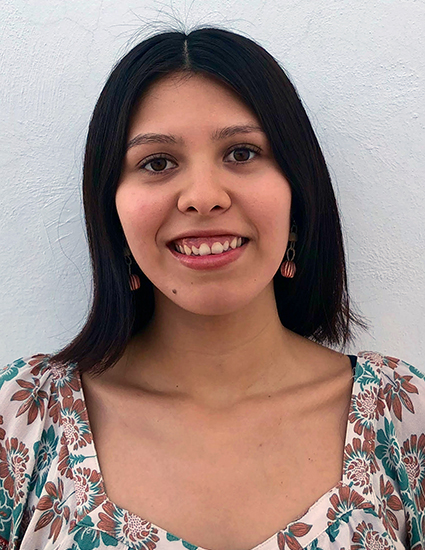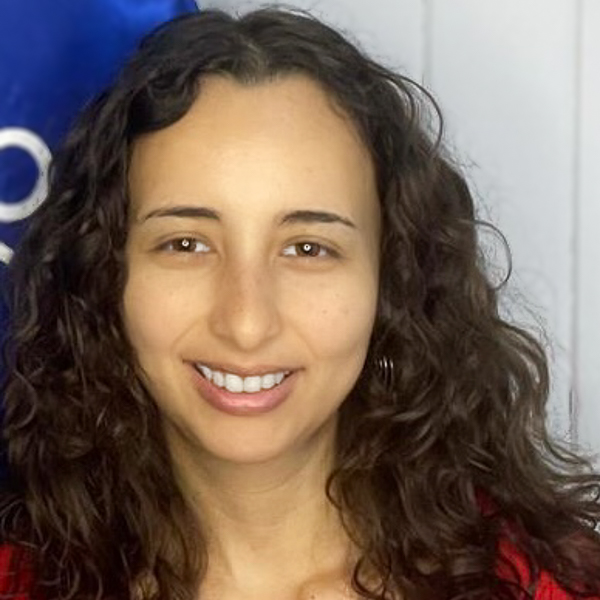Health, Safety, and Wellbeing
Looking Out For You at Every Step
Health and safety come first, with a 360-degree approach that begins with our first conversation with you, and continues after you’re home.
From a deep dive into local information at your on-site orientation to 24/7 emergency assistance, our experienced staff around the world are dedicated to your wellbeing. Much like we work hard to create a study abroad experience geared to you and your individual goals, we also offer advising for each student to address personal health, safety, security, and wellbeing needs. This way, whether you’re bound for London or Lima, you can travel with confidence.
Though it’s impossible to eliminate every risk, our four-part framework does all we can to prepare and avoid health and safety issues. Depend on us to assess the current landscape, deploy proactive safety strategies, and be ready respond. Lastly, we look back at each situation with an eye toward constant improvement, based on our experience and the latest expertise.
With the goal of keeping every student healthy and safe, our Health, Safety, and Wellbeing Team monitors security issues, collaborates with our in-country teams, provides learning for IFSA staff, leads crisis management support, and advocates for best practices.
The Advantage of Our Regional Approach
With a full-time global team of managers dedicated to Health, Safety and Wellbeing, IFSA students benefit from regional expertise, local intelligence, and wrap-around support.
- To discuss country-specific questions, please schedule a call with a Global HSW Manager.
- For all other general inquiries about Health, Safety & Wellbeing, feel free to message our HSW Coordinator.
Global HSW Managers

Tania González
Argentina, Australia, Chile, China, Costa Rica, Cuba, Mexico, New Zealand, Peru, Spain, Sri Lanka, Study Away

Nada Silman
Czech Republic, England, Ireland, Italy, Northern Ireland, Scotland, Wales
HSW Coordinator

Andrea Rodriguez Montoya
IFSA Safety Practices
If you receive accommodations for accessibility or disability at your college or university, know we’ll work with you to find the IFSA program that best suits you and your needs. Options vary by country, city, and host institution, so it’s important to share your requests for diversity practices, mental health concerns, dietary concerns, religious practices, physical disabilities, service animal needs, and learning disabilities early in the planning process.
Your IFSA program includes generous illness and accident coverage through Cultural Insurance Services International (CISI).
Every student must have a cell phone that can exchange calls and texts with our resident office, and communicate with local emergency responders. In addition, we use Alert Media technology for real time updates and locator services.
It’s important to us to employ talented, experienced resident staff in each country where we host programs. You’ll find our full-time resident directors and support staff have a deep understanding of local culture. Their knowledge will help you navigate the medical system, emergency services, insurance, and support resources.
Resident staff are thoroughly trained in emergency response and student affairs. Depend on them to help you to talk through problems and concerns, refer you to support services, and assist in an emergency (you’ll have a phone number to reach IFSA resident staff, 24/7).
IFSA has nearly 30 years of emergency international response and crisis management experience. In an emergency, our Crisis Management team works closely with our resident staff, as well as emergency assistance providers and local emergency services, using our Critical Incident Response Plan as a guide.
In case of emergency, a member of IFSA staff is on-call 24/7, both in the United States and in the countries where we host students. In an emergency, we’ll keep you, your family, and the study abroad office at your home campus up to date, until the situation is resolved.
Student Health Insurance
Peace of mind — and planning for the worst — go a long way when you’re traveling abroad. That’s why your IFSA study abroad program includes generous illness and accident coverage through Cultural Insurance Services International (CISI), designed to help if you need to see a doctor or therapist, or need to seek urgent medical care.
This policy also covers some pre-existing conditions — including counseling — and offers worldwide emergency assistance from anywhere outside of the United States. Coverage is mandatory for every IFSA student — we do not waive it if you already have insurance. If you have questions about insurance coverage for your specific health needs, please contact CISI.
Countries with special requirements
IFSA pays for mandatory university insurance coverage for students studying in Australia (OSHC) and New Zealand (StudentSafe). Students studying in the United Kingdom for six months or longer are covered under the U.K.’s National Health Service.
Enrolling
IFSA enrolls students in CISI approximately 30 days before the program start date.
Proof of insurance for visas
If you need to show proof of insurance for visa purposes, send us an email and we’ll help.
Extending coverage
Planning extra travel? You can extend your CISI coverage for 30 extra days before or after your program abroad for personal travel. Learn more here.
Before You Travel
Staying healthy and safe abroad begins well before you depart. Take it step by step, and you’ll be ready before you know it.
Get informed. Learn about current events and safety information for your program location. The U.S. Department of State page is good place to start.
Sign up for the Smart Traveler Enrollment Program (STEP). A free service from the U.S. Department of State, STEP sends alerts and safety updates, and connects you with the U.S. Embassy in case of emergency.
Review your personal health. Be honest about any physical or mental health needs, medications, dietary concerns, disabilities, or exercise plans you have — and make plans to manage them abroad. You will receive detailed information from your IFSA Enrollment Counselor and our Health, Safety, and Wellbeing Team about general health and safety abroad, but don’t hesitate to connect anytime with questions.
Schedule medical appointments. See your primary care doctor for a physical exam at least three months before you depart. If you have a pre-existing condition or take prescription medication, it’s important to plan ahead. Keep in mind that you may need vaccinations that can take a few months to complete. (For information on required vaccines and local health guidance health for the countries you plan to visit, visit the Centers for Disease Control and Prevention website.) It’s also a good idea to see your dentist for an exam and cleaning before you travel.
Complete your IFSA medical form. Your Enrollment Counselor and the IFSA Health, Safety, and Wellbeing Team will work with you, our resident staff, and our student health insurance provider to help meet your physical and mental health needs. Support is available to you abroad, but it’s important to talk to your doctor or mental health provider to discuss your plans and review treatment options at your program location ahead of time. Sharing information with us via the required medical form is essential to help us guide you appropriately.
Review the U.S. Department of State Traveler’s Checklist, found here.
While You’re Abroad
Cultural adjustment
Many students experience the ups and downs of cultural transition at some point during their time abroad. Know that our resident staff understand this process, and are always available to talk, offer guidance, and connect you with professional support and services as needed.
Health concerns
Accidents, illnesses, and mental health challenges are part of life. If you have health concerns while you’re abroad, we’re here to help. IFSA has standing relationships with general practitioners, specialists, mental health professionals, and hospitals to provide support in every location. With the help of our insurance company, we’ll connect you with appropriate care.
Please keep in mind that we rely on students to be clear, open, and honest about their needs with our resident staff, so we can determine the best way to help.
In response to seeing students’ needs for mental health support climb more than 7% from pre-pandemic readings, we put in place an experienced team of Health, Safety, and Wellbeing specialists to help connect students with professional support and services.
In case of emergency
If you are experiencing an emergency or need to report one, contact:
- Local emergency services, using the number provided during orientation
- Your local IFSA resident staff
- Your embassy or consulate
Keeping Our Standards High
Expert guidance
Staying informed and communicating with other experts ensures we’re providing the best in health and safety. IFSA adheres to the health, safety, security, and risk management guidelines and best practices established by NAFSA: Association of International Educators and The Forum on Education Abroad. In addition, we consult regularly with governmental agencies, private sector experts, and other safety and security professionals that specialize in international education.
Welcoming all
IFSA’s participant agreement and conduct code both prohibit discrimination, bullying, and microaggressions. We’re deeply committed to Inclusive Excellence — a core IFSA principle that welcomes all students, regardless of where they’re from or what they believe — and work to maximize safe expression of identity. It’s important that students are aware that cultural practices in the countries they visit may not align with this philosophy. If you struggle with cultural norms abroad, we’re always here to help. Please reach out.
Sexual misconduct, relationship violence, and stalking
We strive to create a safe, supportive environment for all students. See our complete policy here.
Resources
U.S. Department of State
- Smart Traveler Enrollment Program (STEP)
- Travel advisories and alerts
- Country-by-country information
- U.S. embassies and consulates
- Traveler’s Checklist
Travel and health
- Re-entering the United States
- Centers for Disease Control and Prevention
- Travel medicine clinics in the U.S.
- COVID-19 resources page
CISI student insurance
Student safety
- Association for Safe International Road Travel (ASIRT)
- Rape, Abuse and Incest National Network (RAINN)
- Safety Abroad First – Educational Travel Information (SAFETI) — alcohol awareness info
- United States Lifesaving Association — rip current safety
- IFSA Participant Handbook (Health, Safety, and Wellness: Section 4)
In Case of Emergency
Our Health, Safety, and Wellbeing Team members are located globally, for 24/7 assistance in the event of an emergency.
From outside the United States, call: +1.443.949.3124
From inside the United States, call: 443.949.3124
Students who are abroad: Dial the local emergency number provided during orientation.
In non-emergency situations, contact IFSA resident staff during office hours.
